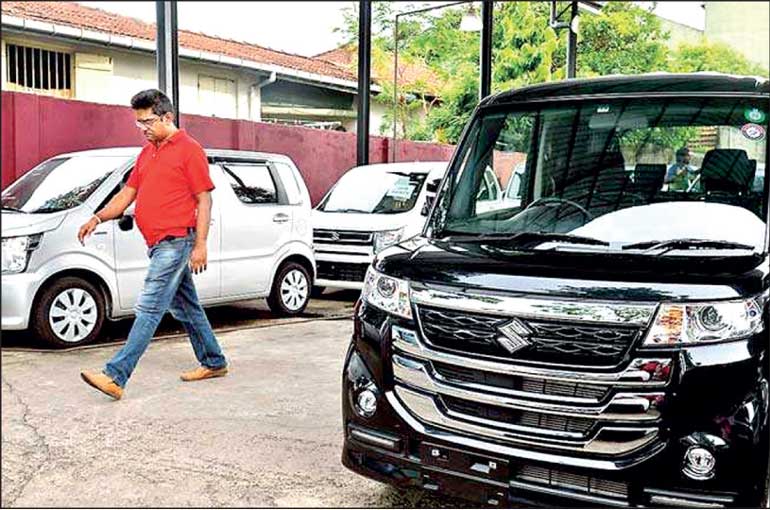Tuesday Feb 17, 2026
Tuesday Feb 17, 2026
Saturday, 28 September 2024 00:39 - - {{hitsCtrl.values.hits}}

Given Sri Lanka’s current economic situation, it is imperative to re-evaluate our approach to vehicle ownership and usage
 Ratha Gaya, a term often used to describe the obsession with owning flashy vehicles, has become a pervasive issue in Sri Lanka. This trend, fuelled by the perceived status and the inadequacy of public transportation, has placed an undue burden on the Government and the nation’s economy.
Ratha Gaya, a term often used to describe the obsession with owning flashy vehicles, has become a pervasive issue in Sri Lanka. This trend, fuelled by the perceived status and the inadequacy of public transportation, has placed an undue burden on the Government and the nation’s economy.
Government officials, often compensated with relatively lower salaries compared to their private sector counterparts, have traditionally been given duty-free vehicle allowances. This has led to a proliferation of vehicles within Government departments, often used more for personal convenience than for official duties. Similarly, the private sector has also succumbed to this trend, viewing vehicles as status symbols rather than mere utilities.
Given Sri Lanka’s current economic situation, it is imperative to re-evaluate our approach to vehicle ownership and usage. The advent of ride-hailing services like Uber and PickMe has demonstrated that it is possible to access transportation without owning a vehicle. This trend is particularly evident among progressive professionals who prioritise convenience and efficiency over ownership.
Extending this concept to the Government sector could significantly improve productivity and reduce costs. By consolidating Government vehicles under a single entity, ideally a public-private partnership, we can optimise vehicle utilisation, ensure proper maintenance, and eliminate wasteful practices and corruption. A similar approach could be applied to high-end medical equipment like scanners. Hospitals often require these machines to provide diagnostic services, but the ownership and maintenance can be outsourced to the private sector. This would allow hospitals to focus on patient care while ensuring access to the latest technology.
By adopting a more strategic approach to vehicle ownership and utilisation, Sri Lanka can reduce its dependence on imported vehicles, conserve resources, and improve the efficiency of Government operations.